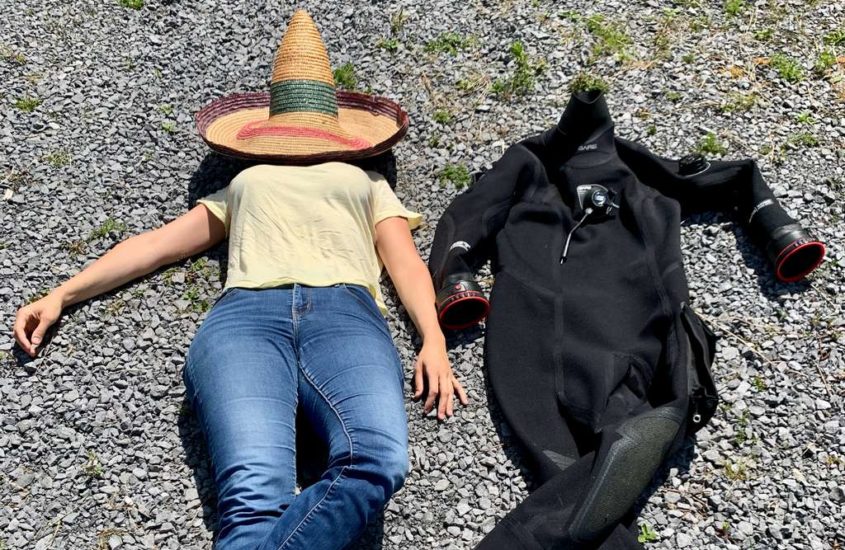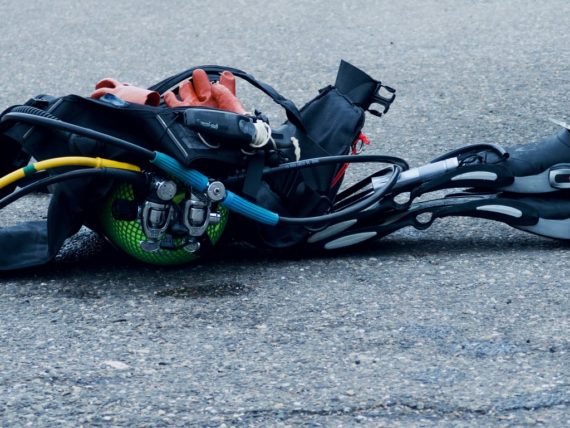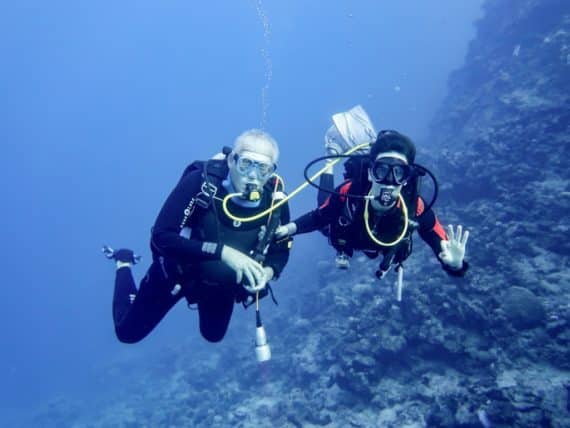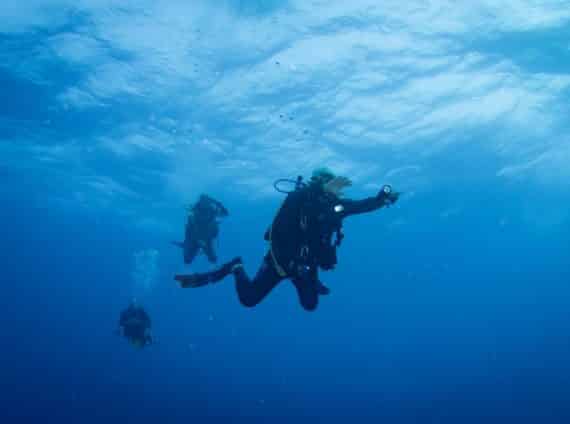Tired after diving? Understand and avoid

Tired after diving
The issue of diving fatigue regularly comes to mind of people who are just starting scuba diving. A little less afterwards. But by the way, why are you Tired after diving ?
This is not going to surprise you, but there is not one answer, but several.
Focus on 5 points to better understand and avoid
Decompression
During a dive, nitrogen dissolves in your body and gradually invades your tissues. During the ascent and during the hours following immersion, your body will have to use energy to remove this excess nitrogen in order to return to its normal state of functioning. This extra work partly explains why you are tired after diving.
To limit fatigue due to decompression
- Dive NITROX
- Don’t skip stops and enjoy your safety stop (you like to be in the water, yes or no ?)
- Definitely don’t make deep dives with air
- Avoid the race to the depths
- Hydrate before and after the dive (with water)
Movements
Diving consumes energy. Some say that a one-hour dive would be equivalent to an hour of tennis! Admit it’s not nothing.
Indeed, underwater, even if you don’t feel it like on the surface, your movements help to consume energy. No wonder you feel tired after the dive… and you’re so hungry that you want to rush to these local specialties.
This is especially true when you are just starting the diving activity and you have trouble stabilizing yourself. Your movements are a little messy are more numerous even if less effective will participate in the fact of feeling tired after the dive (no panic, everyone has been there).
To limit fatigue due to movement
- Work your buoyancy
- Maintain your fitness
- Practice with pleasure the praise of slowness. Don’t swim like a madman
- Kick as less as possible and let yourself be carried by the current if possible.
- Never fight against the current, it’s useless, the current will win
- Adopt a suitable weighting: neither too much nor not enough.
The cold
I remember my very first dives. They were carried out in the cold quarries of Belgium in winter and when I returned home, I had to take a good nap next to my fireplace.
Even if you dive in warm seas, the temperature of the water is never equal to that of your body. This loss of heat contributes to this feeling of fatigue after the dive, as the body must rest to recover.
To limit cold fatigue
- Choose a suit, hood, gloves and booties that are suitable for water temperature
- When you get dressed protect yourself from the cold wind
- If the climate requires it, cover yourself well before and after immersion
- Plan a hot drink to take before and after for winter dives in cold water
Anxiety and stress
A silent enemy par excellence, anxiety increases fatigue after diving.
Muscle clenching, heart beating faster, breathing fast and jerky… the stress and anxiety you may feel while diving will require your body to recover a bit more.
To limit anxiety fatigue
- Surround yourself with trusted buddies
- Get trained with an instructor with which the feeling is good
- Progress at your own pace
- Choose dives tailored to your level of experience
- Avoid anxiety-inducing situations
- Communicate about your stress with your friends
- See the upcoming dive with your eyes closed
- Ask any questions that come to mind at the briefing.
Before-After
It is sometimes forgotten, but diving is an activity that requires a lot of energy before and after the dive: preparation of your rig, concentration on the indications during the briefing, transport of equipment, walking under the sun to reach the water, boat trip, hours spent in the wind or sun … Diving fatigue is prepared before immersion and continues until you sit down to debrief with your buddy. while drinking a large glass of water to hydrate you.
To limit fatigue due to preparation
- Choose easily accessible dive spots
- Hydrate yourself
- Bring your equipment in two or three times if necessary at the water’s edge
- If possible, choose a dive shop close to the dive areas. Those with boats and comfortable facilities usually have my preference.
- Leave your weight at the water’s exit if conditions permit and come back for it after you have been unequipped.
Tired after diving: what to do to avoid it
In general, it is best to adopt good practices to avoid feeling tired after diving.
- Remember to eat correctly before and after the dive
- Avoid efforts before and after the dive (as much as possible).
- Hydrate as much as possible in small regular amounts
- Protect yourself from the sun and wind
- Protect yourself from the cold by adopting water temperature-appropriate equipment
- Stay as calm as possible during immersion
- Choose dives tailored to your level
- Prefer shallower dives and avoid the call of the “ever deeper”
- …
Have you ever felt tired after the dive? What are your feedback and best tips to follow?
Tell us this in a comment below or on the Facebook page to share your experience.
And most of all. remember to be happy 🤗
Helene






